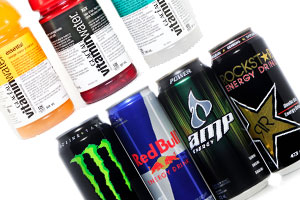Late summer practices in preparation for the fall sports season is a time of hot weather and intense workouts. Hydration is a key factor for staying healthy and competitive. With many options from which to choose, it may be tough to figure out which is the best drink for optimal athletic performance.

Water
Plain water is sufficient for exercise or competition lasting less than one hour. It has zero calories and is cost-effective.
Sports drinks
Gatorade®, PowerAde® and All Sport® are brand names of sports drinks commonly seen on the sidelines across all sports. They provide carbohydrates and electrolytes (mainly potassium and sodium) that water alone cannot replenish. An athlete should drink a sports drink if physical activity is more than an hour long. An advantage sports drinks have over water is that they come flavored, which will usually increase the amount the user will drink. Many sports drinks today have been manufactured with an optimal amount of carbohydrates and electrolytes geared for fast absorption and liquid fueling.
Vitamin drinks
Vitamin drinks contain vitamins, other supplements and carbohydrates that may come in the form of sugar, and water. Reading the label is important no matter which type of drink you choose: sport, vitamin or energy. With vitamin drinks, know the recommended daily allowances for the types of vitamins and supplements in the drink’s ingredients. Too much of one good nutrient can reduce the benefits of others. In the case of calcium, iron and zinc, too much of one can reduce the absorption of the others. Some vitamins and supplements also can react negatively with prescription medication you may be taking. Always talk with your doctor before using products with special vitamin compounds or supplements.
Energy drinks
Energy drinks are popular in many sports because they promise increased performance. They are sold under brand names such as Redbull, Monster Energy Drink and Rockstar Energy Drink. Although caffeine has been shown to help performance in a few areas, its side effects outweigh the use of these types of products during athletic competition. The large amounts of caffeine in these drinks can work more like a diuretic, which can lead to dehydration. Energy drinks with large amounts of sugar also slow down digestion and fluid absorption. Users may experience upset stomach, increased heart rate and jitters.
Know when to hydrate
Hydration starts before you get to the practice field or starting line. Begin hydrating two hours before practice or competition and every 15 minutes during the activity. During competition and after, you need to replenish fluid and electrolytes lost from sweating. A person who is 4 percent dehydrated has a loss of 20 percent from their athletic performance.
Share comments or questions on this information email: sports.medicine@marshfieldclinic.org.
